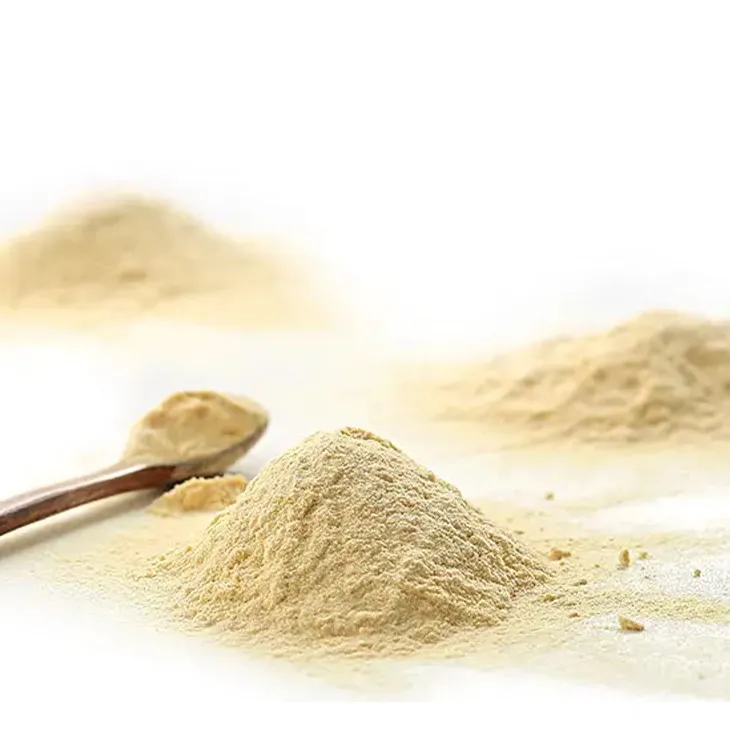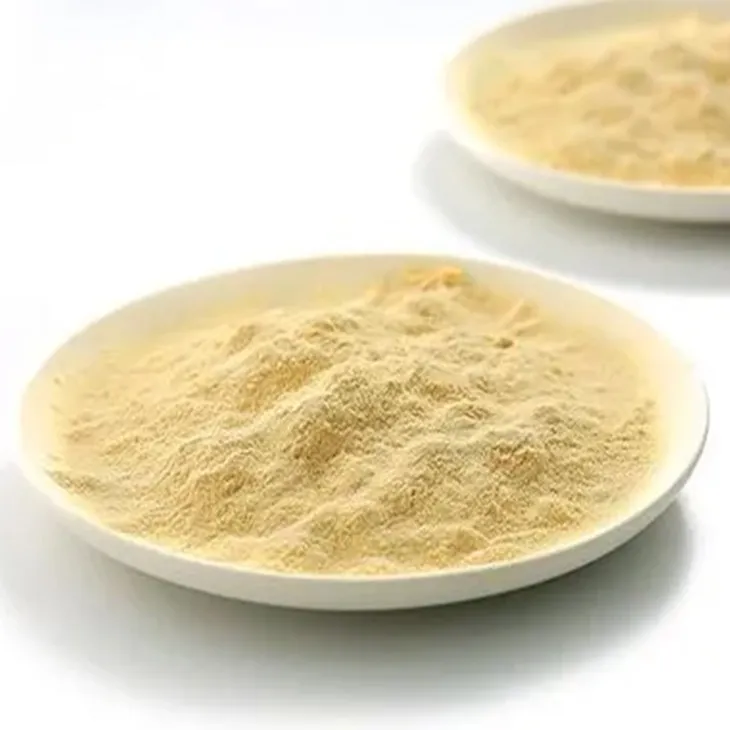- 0086-571-85302990
- sales@greenskybio.com
Selenium yeast: nature's best - kept secret.
2024-11-12

1. Introduction
Selenium is an essential micronutrient that plays a vital role in maintaining human health. Selenium yeast is a unique form of selenium that has been gaining increasing attention in recent years. It is a natural source of selenium that offers a wide range of health benefits. This article will explore the various aspects of Selenium yeast, including its benefits, production process, and its potential for human health and nutrition.

2. The Importance of Selenium in the Body
2.1 Antioxidant Defense
Selenium is a crucial component of antioxidant enzymes such as glutathione peroxidases. These enzymes play a key role in protecting the body from oxidative stress. Oxidative stress can damage cells and tissues, and is associated with a variety of diseases, including cancer, heart disease, and neurodegenerative disorders. By participating in antioxidant defense, selenium helps to neutralize harmful free radicals and reduce the risk of these diseases.
2.2 Thyroid Hormone Regulation
Selenium is also involved in thyroid hormone metabolism. The thyroid gland requires selenium for the proper conversion of thyroxine (T4) to triiodothyronine (T3), the active form of thyroid hormone. Thyroid hormones are essential for regulating metabolism, growth, and development. A deficiency in selenium can lead to thyroid dysfunction, which can have a wide range of symptoms, including fatigue, weight gain, and cold intolerance.
2.3 Immune Function
Another important function of selenium is its role in immune function. Selenium is required for the proper functioning of immune cells, such as lymphocytes and neutrophils. It helps to enhance the immune response, making the body more resistant to infections. Studies have shown that selenium deficiency can impair immune function and increase the susceptibility to infections.

3. Benefits of Selenium yeast
3.1 High Bioavailability
One of the main advantages of selenium yeast is its high bioavailability. Bioavailability refers to the proportion of a nutrient that can be absorbed and utilized by the body. Selenium yeast is in an organic form, which is more easily absorbed by the body compared to inorganic forms of selenium. This means that more of the selenium in selenium yeast can be effectively used by the body to carry out its various functions.
3.2 Rich in Multiple Selenium Compounds
Selenium yeast contains a variety of selenium - containing compounds, such as selenomethionine and selenocysteine. These different compounds may have different biological activities, providing a more comprehensive range of health benefits. For example, selenomethionine can be incorporated into proteins in place of methionine, while selenocysteine is an essential component of certain antioxidant enzymes.
3.3 Safety and Tolerability
Selenium yeast is generally considered safe for consumption within the recommended dosage range. Unlike some inorganic forms of selenium, which can be toxic at high doses, selenium yeast has a lower risk of toxicity. This makes it a suitable option for long - term supplementation, especially for individuals who may be at risk of selenium deficiency.
4. Production Process of Selenium Yeast
The production of selenium yeast involves the cultivation of yeast in a selenium - rich medium. Yeast is a single - celled microorganism that has the ability to take up selenium from its environment and incorporate it into its cellular components. During the production process, yeast is grown in a medium that contains selenium in an appropriate form, such as selenite or selenate. The yeast then assimilates the selenium and converts it into various selenium - containing compounds, such as selenomethionine and selenocysteine. Once the yeast has reached the desired level of selenium incorporation, it is harvested, dried, and processed into a powder or other forms for use in supplements or food products.
5. Selenium Yeast in Human Health and Nutrition
5.1 Dietary Sources of Selenium Yeast
Selenium yeast can be obtained from dietary sources, such as fortified foods and dietary supplements. Many multivitamin and mineral supplements now contain selenium yeast as a source of selenium. In addition, some food products, such as bread and cereals, may be fortified with selenium yeast to increase their selenium content. However, it is important to note that the amount of selenium in these products may vary, and it is essential to follow the recommended daily intake guidelines to avoid excessive or insufficient selenium intake.
5.2 Potential Applications in Disease Prevention
Given its role in antioxidant defense, thyroid hormone regulation, and immune function, selenium yeast has potential applications in disease prevention. For example, some studies have suggested that selenium supplementation may reduce the risk of certain cancers, such as prostate cancer. However, more research is needed to fully understand the relationship between selenium yeast and disease prevention, and to determine the optimal dosage and duration of supplementation.
5.3 Considerations for Supplementation
When considering selenium yeast supplementation, it is important to consult a healthcare professional. They can assess an individual's selenium status, taking into account factors such as diet, age, and underlying health conditions. Based on this assessment, they can recommend an appropriate dosage of selenium yeast supplementation. It is also important to note that excessive selenium intake can be harmful, so it is crucial to follow the recommended guidelines.
6. Conclusion
In conclusion, selenium yeast is a remarkable substance that offers a wide range of health benefits. Its high bioavailability, rich content of multiple selenium compounds, and safety make it an attractive option for supplementing selenium in the diet. With its potential applications in antioxidant defense, thyroid hormone regulation, and disease prevention, selenium yeast has the potential to play an important role in promoting human health and nutrition. However, further research is needed to fully understand its mechanisms of action and to optimize its use. By continuing to explore the benefits of selenium yeast, we can unlock the full potential of this natural wonder for the betterment of human health.
FAQ:
What is selenium yeast?
Selenium yeast is a form of yeast that has been enriched with selenium. It is a complex compound where selenium is incorporated into the yeast cells during the fermentation process. This form of selenium is considered a good source of the micronutrient and has various applications in the field of nutrition and health.
What are the main benefits of selenium yeast for human health?
There are several benefits. Firstly, it plays a key role in antioxidant defense. Selenium is a component of selenoproteins like glutathione peroxidase, which helps to protect cells from oxidative damage. Secondly, it is involved in thyroid hormone regulation, which is essential for maintaining a proper metabolism. Additionally, selenium yeast may also contribute to a healthy immune system and has been associated with a reduced risk of certain diseases.
How is selenium yeast produced?
The production of selenium yeast typically involves a fermentation process. Yeast cells are grown in a medium that contains selenium in a form that can be taken up by the yeast. As the yeast grows and multiplies, it incorporates the selenium into its cells. This results in the formation of selenium - enriched yeast, which can then be harvested and processed for use in various products such as dietary supplements.
Is selenium yeast safe for consumption?
When consumed in appropriate amounts, selenium yeast is generally safe for most people. However, like all selenium sources, excessive intake can be harmful. The recommended daily intake of selenium varies depending on factors such as age, sex, and pregnancy status. It is important to follow the guidelines provided by health authorities to ensure safe consumption. Overconsumption of selenium can lead to symptoms such as hair loss, nail brittleness, and gastrointestinal problems.
How can one incorporate selenium yeast into their diet?
Selenium yeast is often available in the form of dietary supplements. These can be taken as tablets or capsules according to the recommended dosage. Some fortified foods may also contain selenium yeast. However, it is always advisable to consult a healthcare provider before starting any new supplement regimen, especially if you have pre - existing health conditions or are taking other medications.
Related literature
- The Role of Selenium Yeast in Nutrition and Health"
- "Selenium Yeast: Production, Properties and Applications"
- "Beneficial Effects of Selenium Yeast on Human Physiology"
- ▶ Hesperidin
- ▶ Citrus Bioflavonoids
- ▶ Plant Extract
- ▶ lycopene
- ▶ Diosmin
- ▶ Grape seed extract
- ▶ Sea buckthorn Juice Powder
- ▶ Fruit Juice Powder
- ▶ Hops Extract
- ▶ Artichoke Extract
- ▶ Mushroom extract
- ▶ Astaxanthin
- ▶ Green Tea Extract
- ▶ Curcumin
- ▶ Horse Chestnut Extract
- ▶ Other Product
- ▶ Boswellia Serrata Extract
- ▶ Resveratrol
- ▶ Marigold Extract
- ▶ Grape Leaf Extract
- ▶ New Product
- ▶ Aminolevulinic acid
- ▶ Cranberry Extract
- ▶ Red Yeast Rice
- ▶ Red Wine Extract
-
Chasteberry Extract
2024-11-12
-
Lemon Juice Powder
2024-11-12
-
Carrageenan Extract Powder
2024-11-12
-
Peppermint Extract Powder
2024-11-12
-
Red Wine Extract
2024-11-12
-
Hericium erinaceus extract powder
2024-11-12
-
Hesperidin
2024-11-12
-
Hops Extract
2024-11-12
-
Horse Chestnut Extract
2024-11-12
-
Beetroot Powder
2024-11-12





















